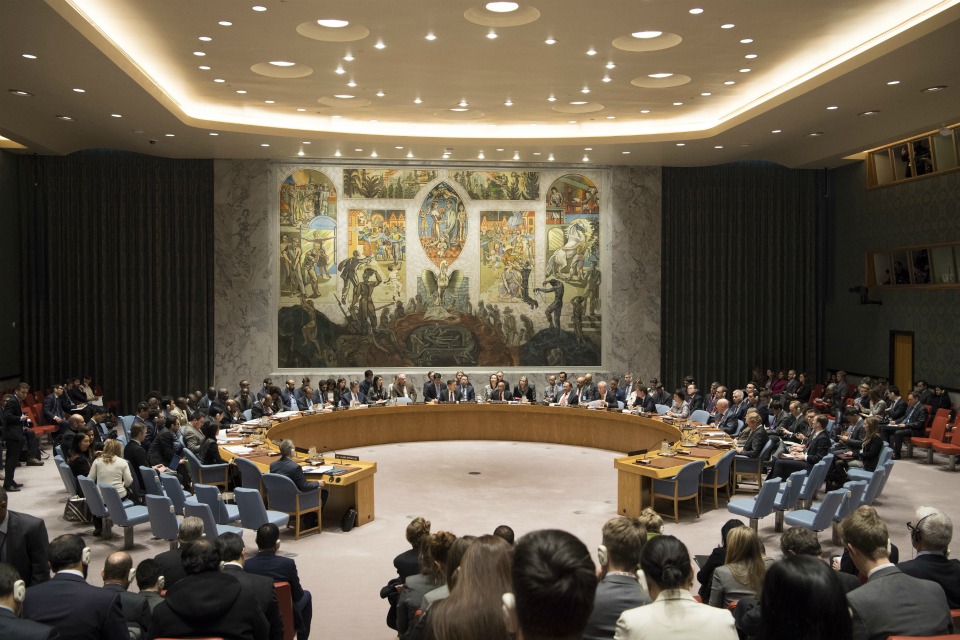Adapting the Security Council to be more inclusive, transparent and effective
Statement by Ambassador Jonathan Allen, Chargé d’Affaires, at the Security Council Open Debate on Working Methods.

Thank you Mr President.
And I would like to thank Ian Martin for his briefing, and the Kuwaiti Presidency for scheduling this open debate. I would also like to congratulate Kuwait on taking up the Chairmanship of the Informal Working Group on Documentation and Other Procedural Questions, and I look forward to a productive two years under your leadership.
Mr President, I am afraid that you have a tough act to follow. I would like to take this opportunity to pay tribute to Japan as the outgoing Chair, particularly their stewardship of the negotiations that led to agreement of a new Note 507.
The new Note 507 is a valuable resource for all current and future members of this Council. It brings together almost all of the Council’s myriad procedural documents and contains a number of important changes. In particular, I would highlight the new language on the conduct of informal consultations, the negotiation process, and cooperation with non-Council bodies, including the Peacebuilding Commission and the African Union. And I echo what the distinguished representative of Ethiopia had to say on the value of African Union briefers to this Council, something we called on collectively when we were in Addis Ababa for our annual meeting.
Many parts of the Note reflect best practice which has built up gradually over the years. But it also signals our collective ambition for a more inclusive, transparent and effective Council that is better able to tackle the challenges of the modern world.
One of the ways that we can deliver this ambition is through a stronger relationship with external partners. Last week, the Cruz report reminded us of the risks faced by peacekeepers deployed by this Council. The United Kingdom is pleased to have worked with Pakistan to strengthen triangular cooperation between the Council, Troop Contributing Countries, Police Contributing Countries and the Secretariat and looks forward to further discussions on this crucial issue in the forthcoming session of the Special Committee on Peacekeeping. The Security Council needs to work closely with those countries whose troops and police are on the front line when we consider our peacekeeping deployments, and we in the UK will continue to ensure that we do so when considering mandates.
We also need to hear more from civil society and particularly from women. And I would just note that today marks a hundred years since women first gained the right to vote in the UK. All too often, we hear only one perspective, and we do not hear from those that are most affected by our decisions in this Chamber. Last year just 30 representatives of civil society briefed this Council, and under a quarter of our briefers were women. We need to do better.
We also need to continue our efforts to make our meetings more effective and action-oriented. This means making sure that the briefings we receive from the Secretariat are comprehensive, but promoting more interactivity in consultations, and seeking outcomes from our meetings. This will not be accomplished by more changes to the guidance, but requires the commitment of all of us around this table, especially during Council members’ Presidencies.
Finally, this Council needs to work harder to meet the Secretary-General’s ambition—and our own—to do more on preventive diplomacy. This means focusing our time on the conflicts of today and tomorrow, not only those of previous decades. It means being flexible in in how we handle our agenda, and making the best use of the Secretariat’s insights, including through situational awareness briefings.
Mr President,
As the world’s threats evolve, so too must this Council. We must implement Note 507. We must also challenge ourselves to continue to adapt as a Council so that we better meet our mandate of maintaining international peace and security.
And may I just finish by thanking those who work so hard to support us as a Council, including in particular SCAD and our excellent interpreters.
Thank you.